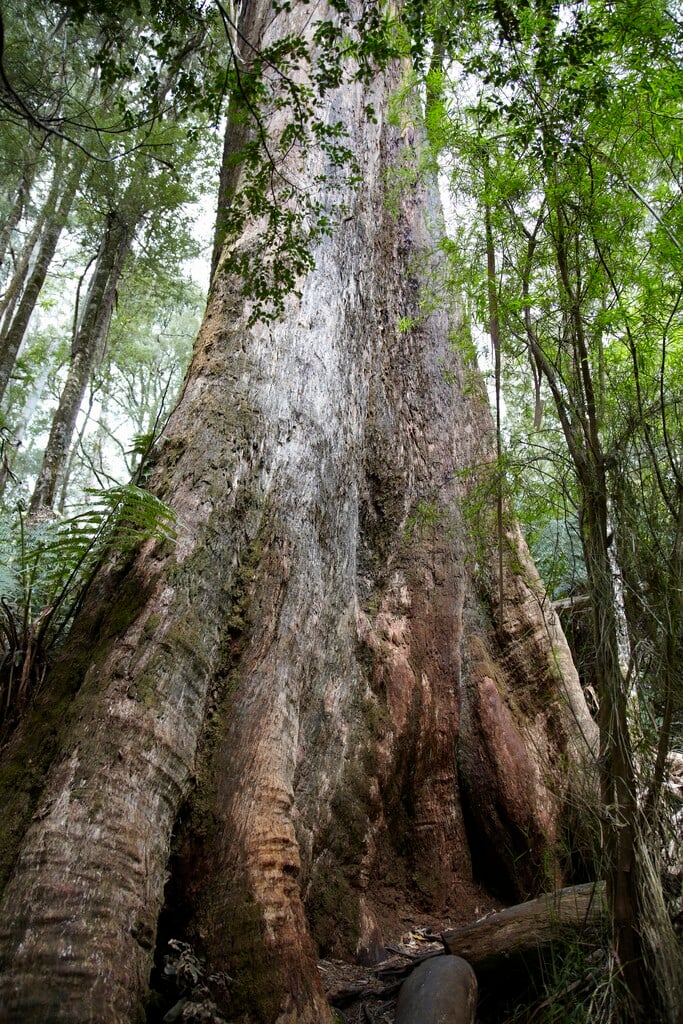Eucalyptus regnans
Australian mountain ash
A very large, evergreen tree with a mature height of 90m (300ft) rivalling giant redwoods for size and making it suitable for only the largest gardens or parkland. The rough-textured bark on the trunk does not shed and is greyish brown. On the branches, the bark sheds in strips to reveal new bark beneath in cream, green and grey. The juvenile foliage and adult foliage are both lance-shaped and green. Flowers are white and appear in autumn. The foliage and stems are aromatic of eucalyptus and balsam when crushed

Buy this plant
Size
Ultimate height
Higher than 12 metresTime to ultimate height
10–20 yearsUltimate spread
Wider than 8 metresGrowing conditions
Moisture
Moist but well–drained, Well–drainedpH
Acid, Neutral, AlkalineColour & scent
| Stem | Flower | Foliage | Fruit | |
| Spring | Green | |||
|---|---|---|---|---|
| Summer | Green | |||
| Autumn | White | Green | ||
| Winter | Green |
Position
- Full sun
Aspect
South–facing or West–facing or East–facing
Exposure
Sheltered Hardiness
H4Botanical details
- Family
- Myrtaceae
- Native to GB / Ireland
- No
- Foliage
- Evergreen
- Habit
- Bushy, Columnar upright
- Genus
Eucalyptus are evergreen trees or large shrubs, often fast-growing, some with attractive bark, most with aromatic foliage, and clusters of small, white, yellow or red flowers
- Name status
Correct
- Plant range
- Australia
How to grow
Cultivation
Grows best in full sun and a mildly acidic, neutral, or mildly alkaline soil that is moist but well-drained. Able to withstand cold temperatures when mature, but shelter from cold, drying winds especially when young. See eucalyptus cultivation
Propagation
Propagate by seed at 13-18°C in spring and summer
Suggested planting locations and garden types
- Architectural
- Mediterranean climate plants
- Cottage and informal garden
Pruning
Pruning group 1 or, for best juvenile foliage, pruning group 7 For more information see Eucalyptus: pruning
Pests
May be susceptible to eucalyptus gall wasp and eucalyptus sucker
Diseases
May be susceptible to silver leaf, oedema and honey fungus
Love gardening
Sign up to receive regular gardening tips, inspiration, offers and more
View our Privacy Policy
Get involved
The Royal Horticultural Society is the UK’s leading gardening charity. We aim to enrich everyone’s life through plants, and make the UK a greener and more beautiful place.